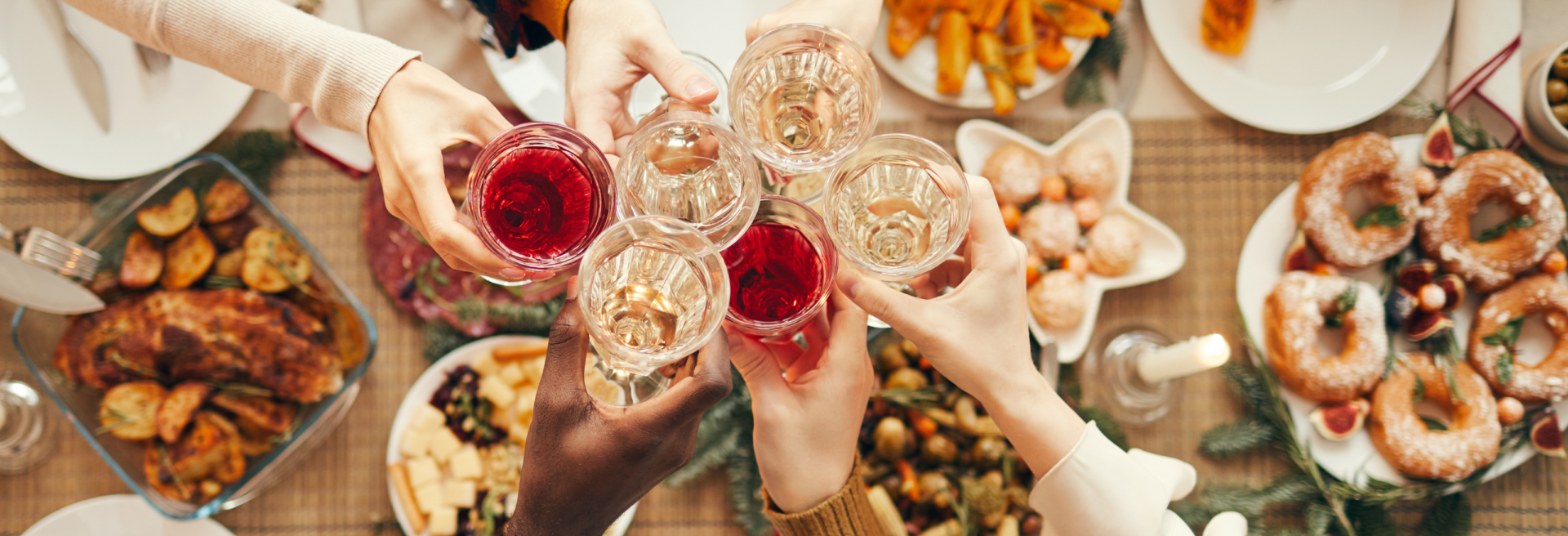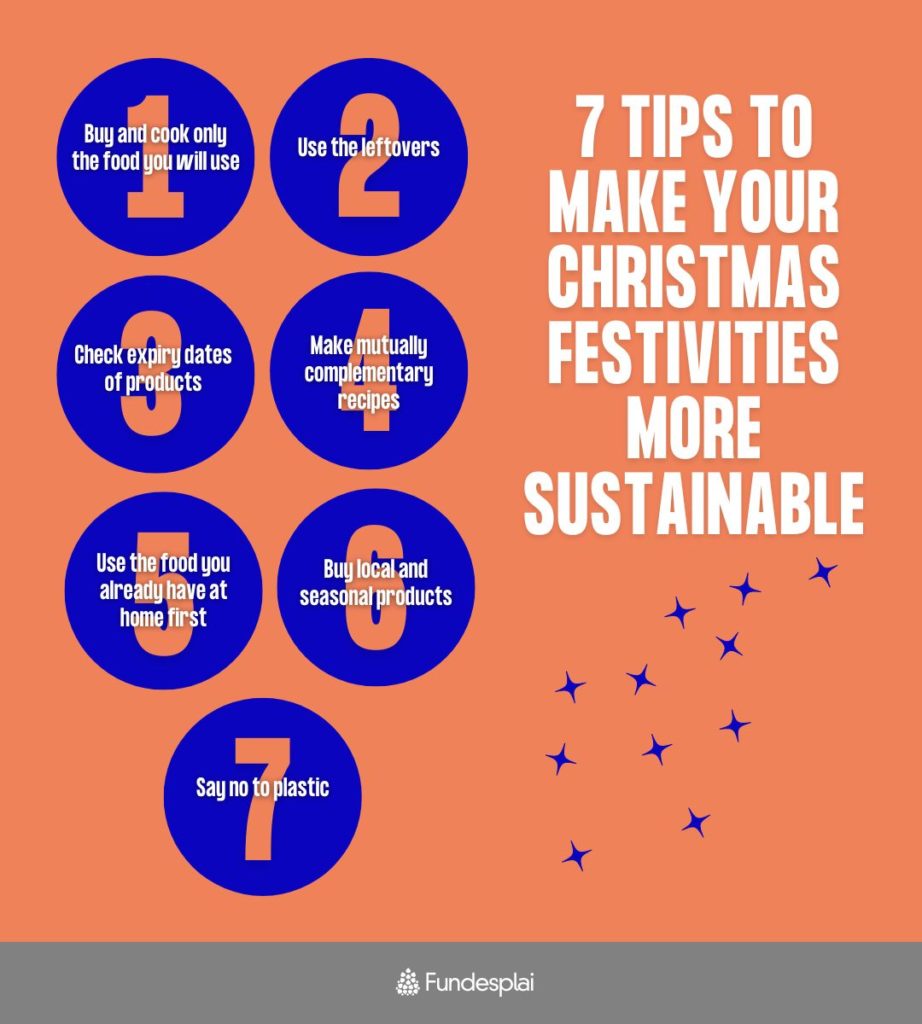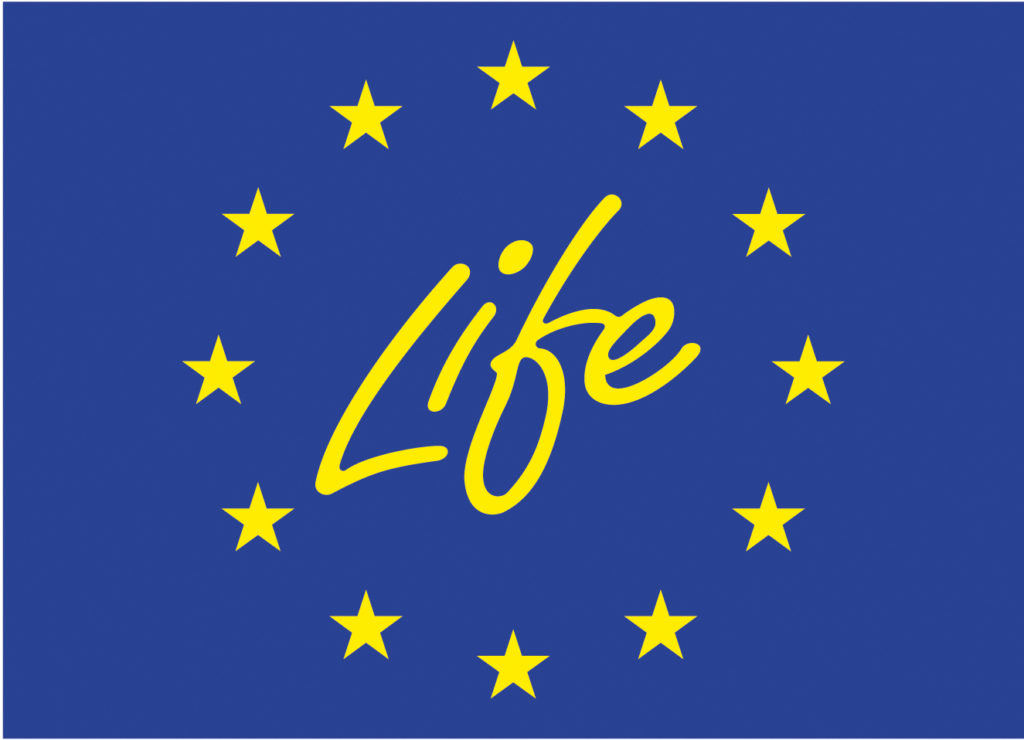
Our planet does not rest at Christmas. Discover the keys to celebrating the festive season in a responsible and environmentally friendly way.
Christmas is approaching, a time of excesses in every sense of the word. At this time of year, which is full of family meals, there is an increase in food consumption and, closely related to this, a greater volume of food thrown away.
Food waste is one of the biggest problems in the current food system and one of the main protagonists of Christmas. In Catalonia, for example, 35 kg of food is thrown away per person per year, a figure that peaks during the Christmas holidays.
This trend accounts for 8-10% of global greenhouse gas emissions (GHGs). Furthermore, when we waste food, we also leave carbon, water and land-use footprints, all of which generate an economic cost.
That 35 kg of food each of us throws away each year implies:
- 59 kg of CO2, the equivalent of going by car from Barcelona to Bilbao;
- 2800 l of water, the equivalent of 142 showers;
- 302 m2 of arable land (or pasture land and meadows) and
- 112 euros.
Below we give you 7 ideas for making Christmas meals more sustainable.

1. BUY AND COOK ONLY THE FOOD YOU WILL USE
Careful planning of the amount of food and products you will need at each lunch or dinner is essential to reducing food waste. With good planning of scheduled meals and menus, you will purchase the right amount of food.
Think of a menu with an adequate amount of food for the number of diners and avoid making more dishes than are necessary.
2. USE THE LEFTOVERS
Even if you have planned the ingredients and quantities well, it is possible that not everyone is that hungry or eats in similar quantities resulting in leftovers. Well, use them to make other dishes! You can make soups, croquettes, salads or cannelloni, for example.
Yet, if you don’t want to cook any more, a quick option is to store leftovers in lunch boxes and hand them out to your guests or freeze them.
3. CHECK PRODUCT EXPIRY DATES
Avoid throwing away food that has passed its expiry date. Organise and prepare meals taking into account the expiry dates of each food.
Remember that the use-by date is not the same as the best-before date. The use-by date indicates the day or month until which the food can be safely consumed. After that date, the product should not be consumed. The best-before date, on the other hand, is the date by which the producer recommends consuming the food while retaining the quality intended at the time of packaging. However, the product may still be safe to eat after this date.
So check this out before you discard food! If a product is past its best-before date but still looks, smells and tastes good, you can still eat it.
Don’t forget that food must be adequately stored so that it doesn’t spoil, regardless of the best-before or best-before date. Here you will find tips on how to preserve them better and for longer.
4. MAKE MUTUALLY COMPLEMENTARY RECIPES
To make the most of food, try to make recipes with some ingredients in common. For example, if you have bought carrots to make some starters for Christmas lunch, use them to make a salad or a carrot cake.
The aim is to buy less variety of products and make more recipes with the same ingredients. In this way, we avoid throwing away food that we only use for one dish in a meal.
5. USE THE FOOD YOU ALREADY HAVE AT HOME FIRST
Do you really need to shop specifically for Christmas meals? Before making a trip to the supermarket, check what food you have at home and prioritise eating it rather than buying more.
6. BUY LOCAL AND SEASONAL PRODUCTS
It is always advisable to favour local and proximity commerce. In this way, you will minimise the environmental impact of your purchase as a result of the reduction of transport processes, among other things.
7. SAY NO TO PLASTIC
It is common for many people to participate in Christmas meals. As a result, it is common to use a lot of plates, glasses, cups and cutlery. The expected extra work of cleaning the dishes may lead to the use of disposable plates, glasses and cutlery. In this case, avoid plastic utensils. It is always better to use cardboard, wood or other biodegradable alternatives that are more environmentally sustainable.
To learn more about sustainability and food, come to visit the Menja, Actua, Impacta [Eat, Act, Impact] exhibition!

